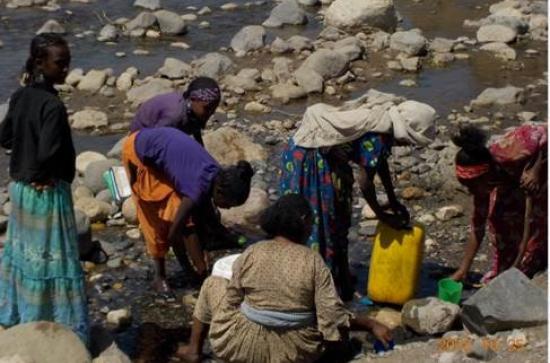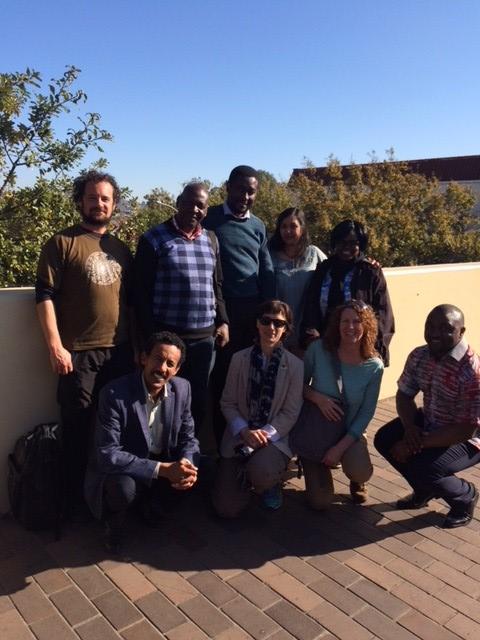
G. Honor Fagan, MUSSI, has led the social science team of the WaterSPOUTT programme to completion of a base-line survey of 2,265 households on the social, political and economic context of water use, needs and vulnerability in four communities across four case-study countries. The team completed the collection of data in the field last September and aim to complete the analysis (being carried out by Dr. Daniel Etongo Bau, MUSSI) and report by end of May, 2018. They collected extensive household data during June, July, August and September 2017 from 595 households in Ethiopia, 627 in Malawi, 641 in Uganda and 402 in South Africa.
Meanwhile, the team has carried out a series of 12 Shared Dialogue Workshops with the communities involved in the four countries where Physical and Social Scientists and community members and/or data collectors meet and engage in discussions on communities’ water vulnerabilities. Access to, and the socio-ecological management of water resources, is a vital component of any international development framework that seeks to eradicate poverty and address global socio-economic inequities.
The WaterSPOUTT social science team of 18 social scientists based in six countries, which includes Dr Chandana Mathur, Department of Anthropology, Maynooth University, has been actively engaged in sustainable development of water resourcing for poverty eradication for over ten years.

Photo:Members of the WaterSPOUTT Social Science Team From back left to right : Berry Wessels, University of Stellenbosh, Kingsley Lungu, University of Malawi, George BUCKs Chandana Mathur Maynooth University Consolata Kabonesa,University of Makerere, Uganda, Zenawi Zerihun Michelle Kooy, UNESCO-IHE, G Honor Fagan and Daniel Etongo, Maynooth University at University of Stellenbosh, Capetown, South Africa. Fagan has a chapter derived from this research called ‘Water and a Fluid International Agenda’ in her most recent co- edited book Handbook on Development and Social Change which will be launched shortly, but can be found at https://www.e-elgar.com/shop/handbook-on-development-and-social-change.
Note: WATERSPOUTT aims at providing safe drinking water to communities who rely on unsafe sources. The consortium is carrying out a technological development programme to advance three applications based on Solar Disinfection (SODIS), which can make water safe to drink after it has been collected. In parallel, a social science programme has been structured to make sure that the technologies are adopted by the target communities in rural Africa, with the support of the local authorities and in an economically sustainable way. This project has received funding from the European Union’s Horizon 2020 research and innovation programme.
